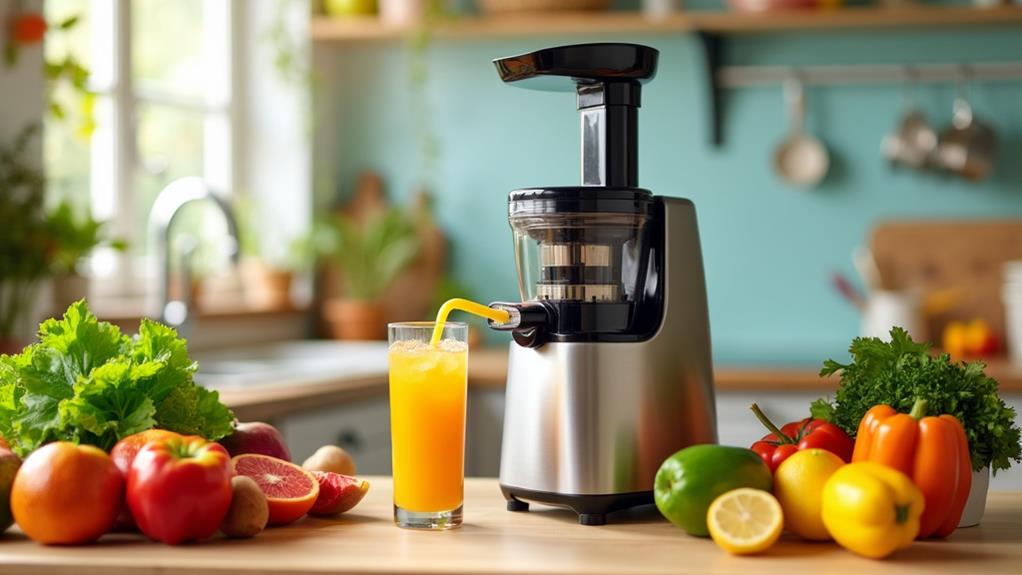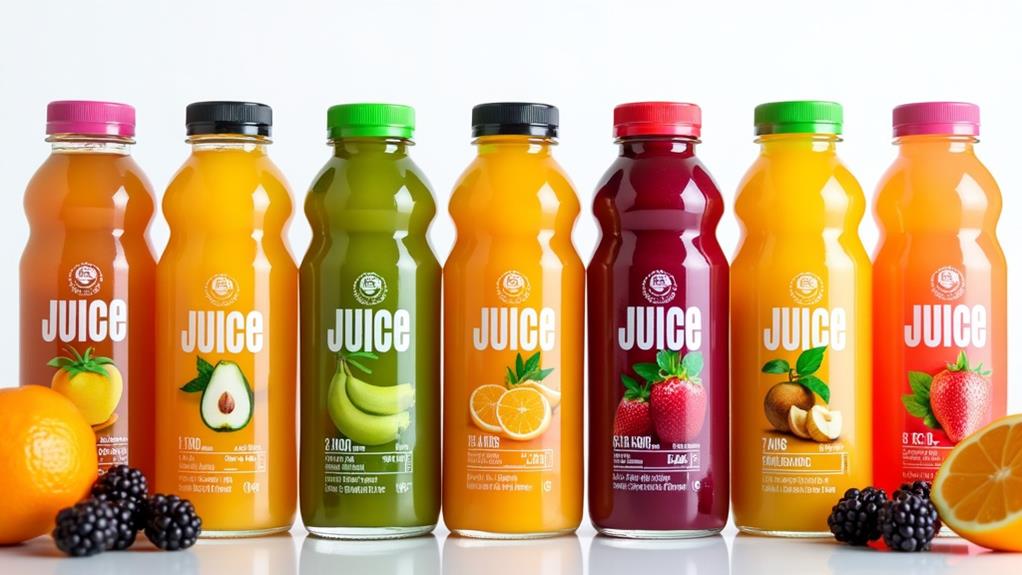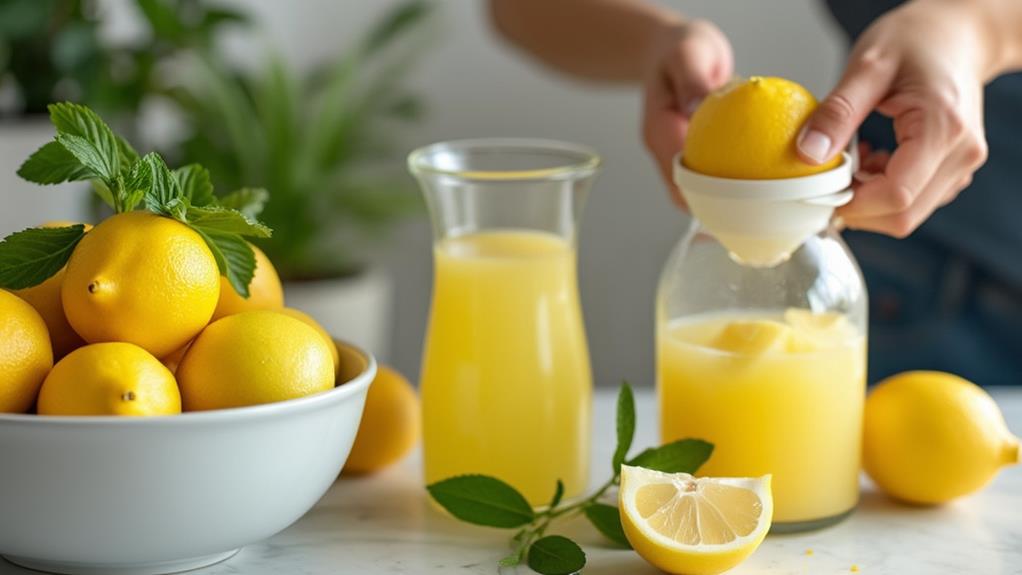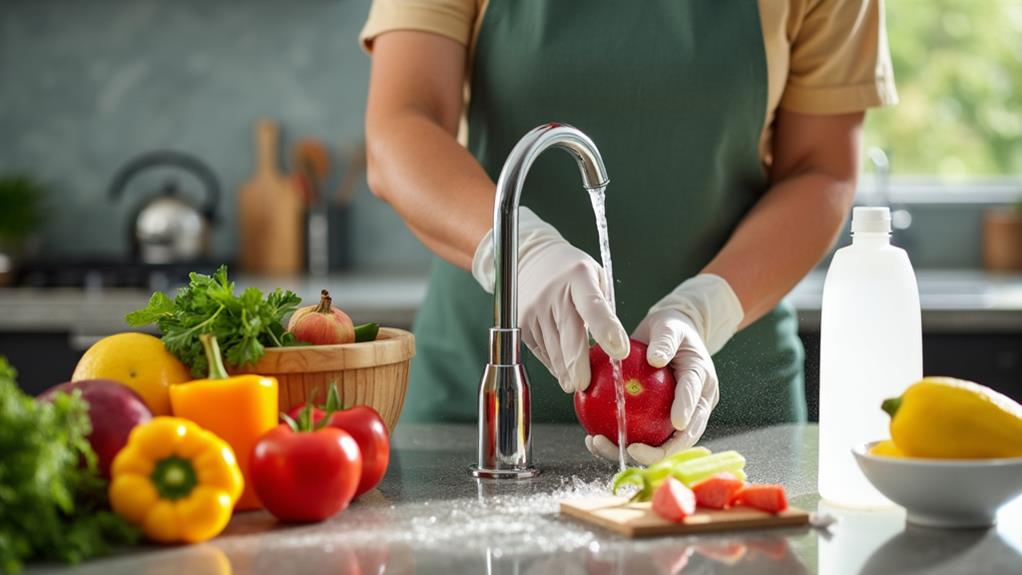Essential Juicing Guide for Beginners
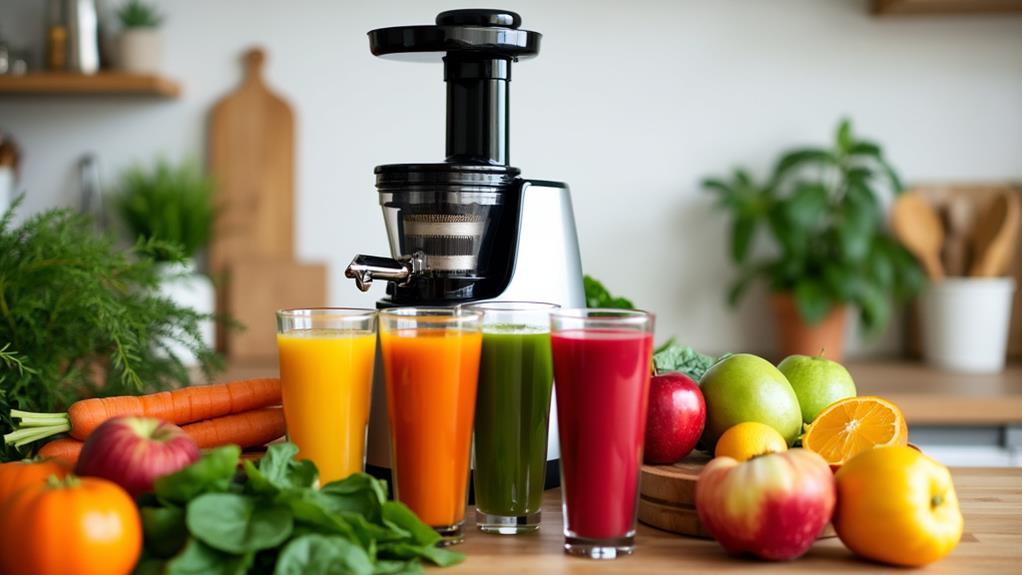
Embarking on your juicing journey can seem daunting, but a comprehensive guide can significantly ease the process. Understanding the different types of juicers—centrifugal and masticating—will help you make an informed decision that suits both your needs and budget. Additionally, you'll find valuable tips for creating balanced juice blends and storing them to retain their freshness and flavor. Being aware of common mistakes can save you time and frustration. Ready to explore some popular recipes and the myriad health benefits juicing offers? Let's dive in.
Understanding Juicing
Juicing involves extracting liquid from fresh fruits and vegetables, creating a nutrient-rich beverage. This process separates the juice from the pulp and fibers, retaining most vitamins, minerals, and phytonutrients. The nutrients in juice are easily absorbed into the bloodstream, making it a convenient way to boost your intake of essential compounds.
To maximize the benefits of juicing, use a variety of fruits and vegetables. Fruits like oranges, apples, and pineapples add sweetness and essential vitamins. Vegetables such as kale, spinach, and carrots contribute flavor and a wide range of nutrients. Choosing organic produce can further enhance the nutrient content of your juice and support overall health.
Health Benefits
Improving your health with freshly made juices offers numerous benefits. Juicing provides a concentrated source of essential vitamins, minerals, and antioxidants, making it easier for your body to absorb these nutrients, particularly when consumed on an empty stomach. This enhanced nutrient absorption is crucial for bolstering your immune system, thanks to the high vitamin C content and other beneficial compounds in fruits and vegetables.
Incorporating fresh juices into your diet regularly can also aid in detoxification. These juices support your body's natural processes to eliminate toxins more efficiently. This detox benefit is complemented by improved digestion. While juicing removes insoluble fiber, it retains soluble fiber, promoting gut health and maintaining smooth digestive function.
Additionally, the health benefits of juicing extend to increased energy levels and improved mood. Many individuals report feeling more energized and in better spirits after integrating fresh juices into their daily routines. With all these advantages, it's clear why juicing has become a popular method for enhancing well-being and maintaining a balanced lifestyle.
Types of Juicers
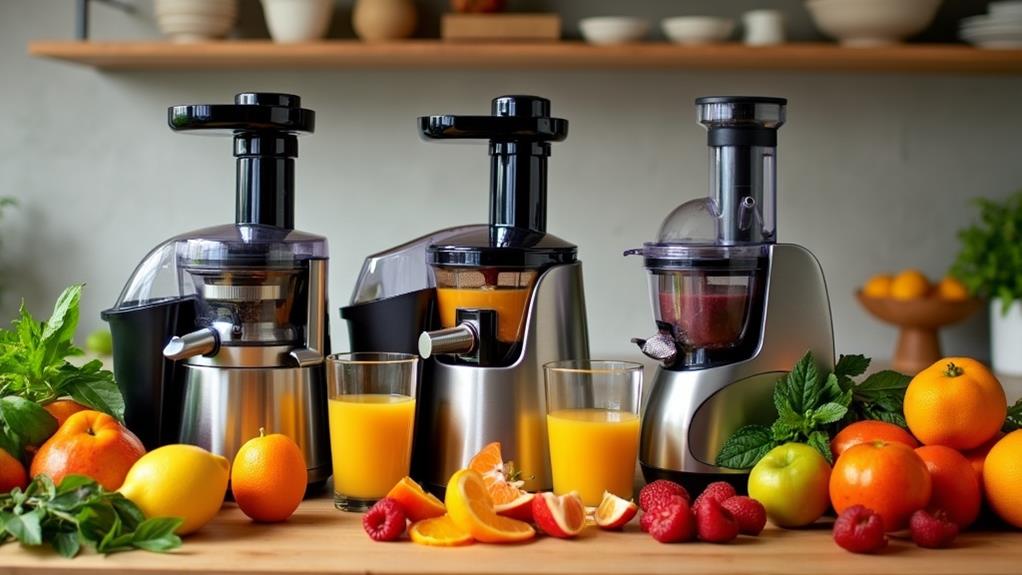
When choosing a juicer, it's crucial to understand the differences between centrifugal and masticating juicers. Centrifugal juicers are fast and user-friendly but may reduce nutrient content due to heat generation. In contrast, masticating juicers operate more slowly to preserve enzymes, resulting in higher juice yields and longer storage life.
Centrifugal Vs. Masticating Juicers
Selecting the right juicer can significantly enhance your juicing experience and the nutritional value of your juice. When choosing between a centrifugal juicer and a masticating juicer, it's important to consider your priorities.
Centrifugal juicers operate at high speeds, making them user-friendly and efficient for quick juice extraction. However, this high-speed process may compromise nutrient retention and juice quality, so it's best to consume the juice within 8 hours to maximize health benefits.
In contrast, masticating juicers, also known as cold-press juicers, work at slower speeds to crush and press fruits and vegetables. This method preserves more nutrients and results in a higher juice yield, ideal for health-conscious individuals. Masticating juicers are particularly effective at extracting juice from leafy greens and fibrous vegetables, providing nutrient-dense juice that can be stored for up to 72 hours without significant nutrient loss.
While masticating juicers may require more cleaning effort and are generally heavier, they offer superior nutrient retention and juice quality. Centrifugal juicers are more affordable and simpler to use, making them a great choice for beginners.
Choosing the right juicer ultimately depends on your priorities: ease of use and cost with a centrifugal juicer, or nutrient retention and juice quality with a masticating juicer.
Twin Gear Juicers Benefits
Twin gear juicers are renowned for their exceptional performance, operating at low speeds of 80-110 RPM. This slow speed minimizes heat generation and oxidation, preserving more nutrients and enzymes in your juice. They offer a high juice yield, extracting up to 90% from both leafy greens and hard vegetables, ensuring you maximize your produce.
Equipped with dual augers, these juicers crush and press ingredients, resulting in a smoother juice texture and higher nutrient concentration. They are versatile enough to handle everything from soft fruits to fibrous vegetables, allowing you to explore a wide variety of juice recipes. Whether you're juicing spinach, kale, or carrots, twin gear juicers deliver superior juice quality.
However, these benefits come at a higher cost, with prices ranging from $300 to over $1,000. They are also heavier and require more time for cleaning and assembly compared to other juicers. Despite these drawbacks, for those serious about juicing and seeking optimal nutrient retention and juice yield, a twin gear juicer is a worthwhile investment.
Juicing Tips
Jumping into the world of juicing can be both exciting and overwhelming, but with a few handy tips, you'll be crafting delicious and nutritious juices in no time. Start by balancing your juice with 80% vegetables and 20% fruits. This approach helps minimize sugar intake while still allowing you to enjoy flavorful juices. Opt for high-water-content fruits and vegetables like cucumbers and watermelon to create hydrating and invigorating juices.
For optimal nutritional benefits, drink your freshly made juice immediately after preparation. Exposure to air can degrade nutrients and flavor, so it's best consumed right away. Experiment with different fruits, vegetables, and herbs to find combinations that suit your taste preferences. Mixing and matching ingredients can help you discover new favorites.
Always clean your juicer thoroughly after each use. This practice prevents bacterial growth and ensures the longevity of your appliance. Be mindful of the sugar content in your juices—using a higher proportion of vegetables over fruits helps keep your sugar intake in check while still providing a tasty and nutritious beverage. With these juicing tips, you're set to enjoy a healthy and refreshing juicing experience.
Storing Juice
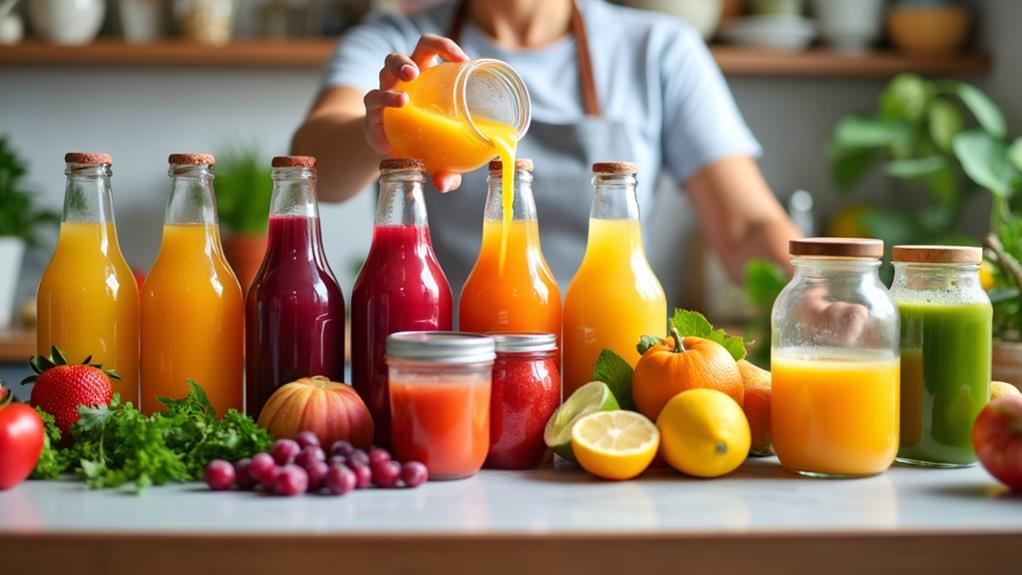
To store freshly made juice, use airtight glass containers to preserve its nutrients for up to 72 hours in the refrigerator. Fill the containers to the brim, add a bit of lemon juice, and keep them away from light and heat to maintain freshness. For longer storage, freezing is an option; just leave space for expansion.
Optimal Storage Methods
Whether you're new to juicing or an experienced enthusiast, proper storage of freshly made juice is essential for preserving its quality and nutrient content. Ideally, consume freshly made juice immediately. However, you can store it in the refrigerator for up to 24-48 hours to maintain its quality.
To keep your juice fresh, follow these guidelines:
- Use Airtight Glass Containers: Store your juice in airtight glass containers filled to the top to minimize oxidation and light exposure, which helps preserve its freshness and nutrients.
- Add Lemon Juice: Adding a small amount of lemon juice reduces oxidation, helping to maintain freshness and prevent browning.
- Cold-Pressed vs. Centrifugal: Cold-pressed juices can last up to 72 hours in the refrigerator, while juices from centrifugal juicers should be consumed within 8 hours for optimal taste and nutrient retention.
For longer storage, consider freezing the juice. Remember to leave space in the container for expansion as the juice freezes to maintain its quality. By following these storage methods, you can enjoy fresh, nutrient-rich juice every time.
Prolonging Juice Freshness
To ensure your freshly made juice remains nutrient-dense and flavorful, proper storage is essential. Fresh juice retains its peak nutritional value for up to 72 hours when stored correctly. Use airtight containers, preferably glass jars, to minimize oxidation and reduce the risk of chemical leaching, which can degrade the juice's quality.
Adding a small amount of lemon juice can help extend the shelf life. The citric acid in lemon juice acts as a natural preservative, delaying spoilage. Always fill your storage containers to the top to limit air exposure, thereby protecting the juice's flavor and nutrient integrity.
Refrigerate your juice at temperatures below 40°F (4°C) to slow bacterial growth and maintain its nutritional value. Proper refrigeration is crucial for keeping your juice safe to drink and ensuring it remains beneficial. By following these steps, you can enjoy your fresh juice longer without compromising on taste or health benefits. Proper storage is key to maintaining the quality and nutritional value of your juice.
Common Mistakes
Why do so many beginners stumble when they start juicing? Often, it's due to a few common mistakes that are easily avoidable once you're aware of them.
First, many new juicers focus too much on fruit juices, leading to excessive sugar intake. This can negate the health benefits of juicing and impact blood sugar levels. Second, it's important to incorporate a variety of vegetables to ensure nutrient diversity. Many essential vitamins and minerals are primarily found in greens and root vegetables.
Here are three common mistakes:
- Neglecting Whole Foods: Relying solely on juices can lead to nutrient deficiencies since juices lack the fiber and some nutrients found in whole fruits and vegetables.
- Not Cleaning Juicer Components: Failing to properly clean your juicer can result in bacterial growth, posing a health risk and affecting juice quality.
- Ignoring Personal Health Conditions: If you have dietary restrictions or health issues like kidney problems, avoid high-oxalate foods such as spinach and beets.
Popular Recipes
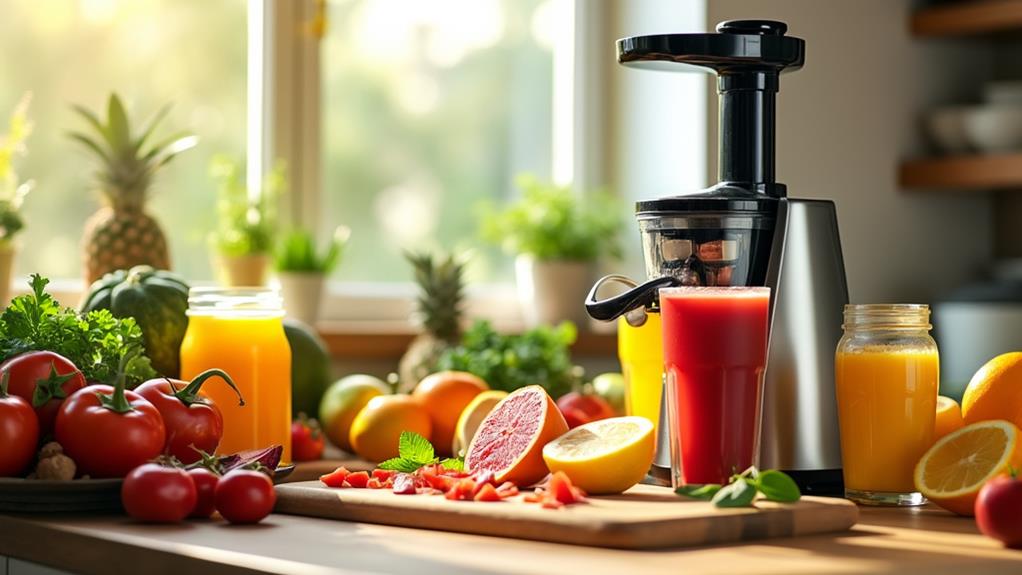
Exploring the world of juicing can be both exciting and rewarding, especially when you have a collection of popular recipes to try. These delicious juice recipes not only taste good but also offer numerous health benefits.
| Juice Recipe | Key Ingredients |
|---|---|
| Spinach Orange | Spinach, Oranges |
| Beetroot | Beets, Carrots, Apples |
| Green | Kale, Cucumber, Green Apple |
| Carrot Ginger | Carrots, Fresh Ginger, Lemon |
| Tropical | Pineapple, Mango, Coconut Water |
Start with Spinach Orange Juice. This invigorating drink combines nutrient-rich spinach with vitamin C-packed oranges, supporting immune health and providing a refreshing way to consume your daily servings of fruits and vegetables.
Next, try Beetroot Juice. Known for its detoxifying properties, it includes beets, carrots, and apples. This juice supports liver function and enhances blood flow, making it a powerful detoxifier.
Green Juice is another excellent option. With kale, cucumber, and green apple, this beverage offers a boost of vitamins A and K, ideal for those looking to increase their leafy green intake.
For digestive health, Carrot Ginger Juice is ideal. The blend of carrots, fresh ginger, and lemon provides anti-inflammatory benefits and aids digestion.

